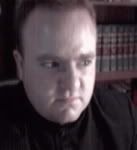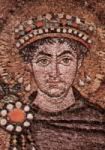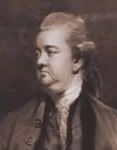


Lil' Ole Me, Emperor Constantine, Edward Gibbon
I was reading from Edward Gibbon's The Decline and Fall of the Roman Empire the other day (I know, I know) and I came across a very interesting passage which I will come to in a moment. I know some other bloggers and churchmen have complained about the Episcopal Church's website inappropriately referring to the divine Persons of the Trinity as different "aspects" of God on its "Seekers' Center" Q&A.
Here are some excerpts from that webpage:
"One of the most difficult to explain, and often misunderstood concepts in the Christian faith is the belief in a trinitarian God, one God with three aspects. Often characterized as the 'Father,' Son,' and 'Holy Spirit,' the trinity represents God the Father/Creator, Jesus Christ the Son and Savior, and the Holy Spirit, or the creative, inspirational force at work in the world. . . . Christian teachings and belief however are clear on this point: there is only one God, the Creator of the universe, who has three 'persons' or aspects, inseparable yet unique parts of the whole. There are many metaphors for the Trinity, many ways of trying to conceptualize that which is almost beyond our grasp, but for Christians it is the way we interact with these three aspects that matter most."
Some of the descriptions of the Son and Holy Spirit are particularly offensive. For example, "Though fully human in body, most Christians believe that the spirit of Jesus was that of God itself. This represents the second aspect of the Trinity, Jesus Christ the 'Son.' . . . Perhaps the most difficult aspect of God to explain is that of the Holy Spirit. This is the aspect of God that is at work in the world, that inspires us, that speaks to us and strengthens us to do the often difficult work that our faith demands of us. The Spirit is often seen as the creative energy that's at work in the world, whereas God the Father 'willed' the world to come into being, God the Holy Spirit was the force that brought this into being." At least the website doesn't state, "May the force be with you."
I'd be curious to ask the person who wrote the page what they were thinking. Was this an ignorant mistake, or is it an intentional theological statement? I have a great interest in the use and misuse of words in our language. I know it is common for people to misuse words in English, even to use them to express an opposite meaning. For example, consider the word "peruse."
If I said that I perused Gibbon's book last night, most people would understand that to mean that I skimmed through the work, glancing at a chapter here and a paragraph there. However, "peruse" actually has the opposite meaning. To say that "I perused Gibbon's book" is to say that I read it very carefully and diligently.
Is this what is happening to the word "aspect" as it is used on the Episcopal Church's website? When I look up "aspect" in my friendly neighborhood dictionary, I read:
aspect (as'pekt), n. 1. appearance to the eye or mind. 2. view or interpretation. 3. a distinct feature or phase. 4. an apparent attitude or character.
That hardly seems an appropriate word to use about the divine Persons of the Holy Trinity.
Back to Gibbons. In reading his account of the Council of Nicaea in AD 325, Gibbons notes that the early discussions came to three variant opinions about the nature of the Godhead. At first, they were considered legitimate views, but by the end of the council, they were all condemned. The first hypothesis was the view of Arius that the Son was the most exalted of God's creatures. The second was a more modalistic tritheism. It is the third, printed below, that made me think back to the website.
"III. Three beings, who, by the self-derived necessity of their existence, possess all the divine attributes in the most perfect degree, who are eternal in duration, infinite in space, and intimately present to each other and to the whole universe, irresistibly force themselves on the astonished mind as one and the same Being, who, in the economy of grace, as well as in that of nature may manifest himself under different forms, and be considered under different aspects. By this hypothesis, a real and substantial trinity is refined into a trinity of names and abstract modifications that subsist only in the mind which conceives them. The Logos is no longer a person, but an attribute; and it is only in a figurative sense that the epithet of Son can be applied to the eternal reason which was with God from the beginning, and by which, not by whom, all things were made."
How is that different from the Episcopal Seekers' Center? The ECUSA website uses the word "itself" for God rather than "himself."

No comments:
Post a Comment